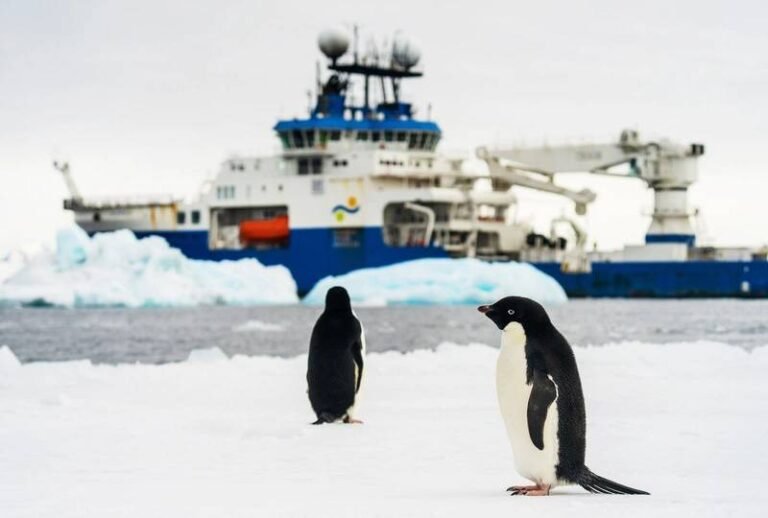Exploring the Depths of Antarctica with Research Vessel Falkor
Embarking on its first science expedition to Antarctica, Schmidt Ocean Institute’s research vessel Falkor (too) has successfully completed a three-week journey that ended in early January. This ambitious expedition marked a significant milestone for the institute, pushing the boundaries of scientific exploration in the Southern Ocean.
Operational Excellence in Unfamiliar Territory
With meticulous preparation and operational refinements, R/V Falkor (too) navigated the challenging environmental conditions of the Southern Ocean with exceptional performance. The crew gained valuable experience, setting the stage for future explorations in this critical region of the global ocean.
Scientific Discoveries in the Antarctic Abyss
Equipped with a certified Class C polar vessel designation, R/V Falkor (too) conducted scientific operations that included deep-sea dives using the remotely operated vehicle (ROV) SuBastian. These dives delved into the depths of the Antarctic seafloor, revealing biodiversity, vent ecosystems, and seafloor mapping.
Ice pilots and crew facilitated research activities on Joinville Island, studying marine mammals and seabirds in their natural habitat. The live-streaming of ROV dives allowed global audiences to witness rare Antarctic marine life in action.
Collaborative Exploration and Conservation
The expedition, named “Into the Southern Ocean,” was a collaborative effort between Schmidt Ocean Institute and the National Geographic Society. National Geographic Explorers conducted a comprehensive scientific examination of the Southern Ocean, focusing on conservation solutions for this vital marine ecosystem.
Artist-at-Sea Julian Charrèire captured the essence of the expedition through his unique artistic lens, exploring the transformation of nature over geological and human historical timeframes. His work adds a creative dimension to the scientific endeavors in Antarctica.
Future Expeditions and Research
Following the successful Antarctic voyage, R/V Falkor (too) will continue supporting research in the South Atlantic Ocean over the next four years. The institute’s commitment to multiple Antarctic expeditions in the coming decade underscores its dedication to advancing scientific knowledge and conservation efforts in polar environments.
As Executive Director Dr. Jyotika Virmani emphasizes, the journey into polar environments is just beginning, with a focus on understanding the interconnectedness of these remote regions with the wellbeing of the planet. The exploration of Antarctica represents a vital step in unraveling the mysteries of the Southern Ocean and its role in regulating Earth’s climate systems.

